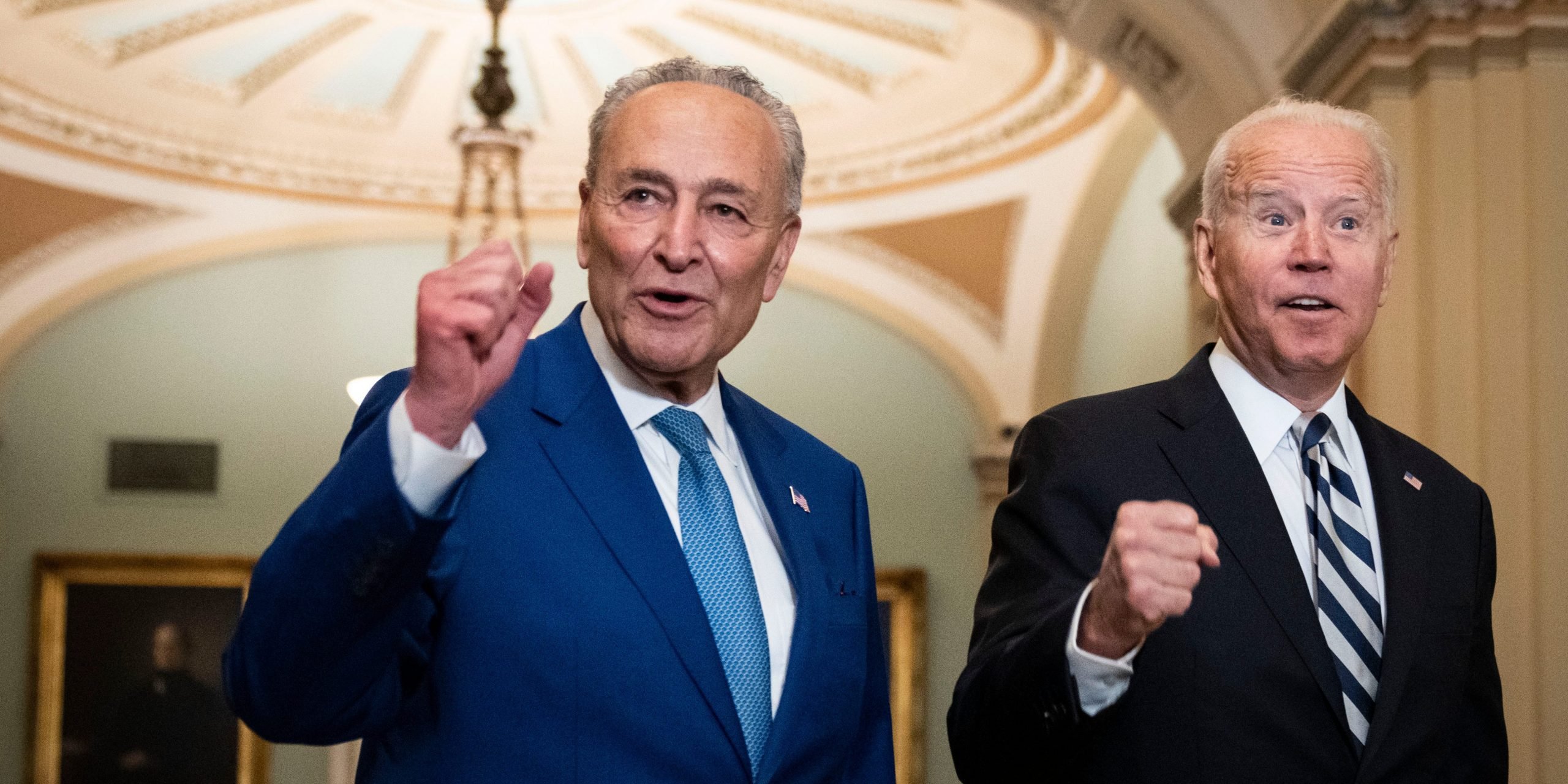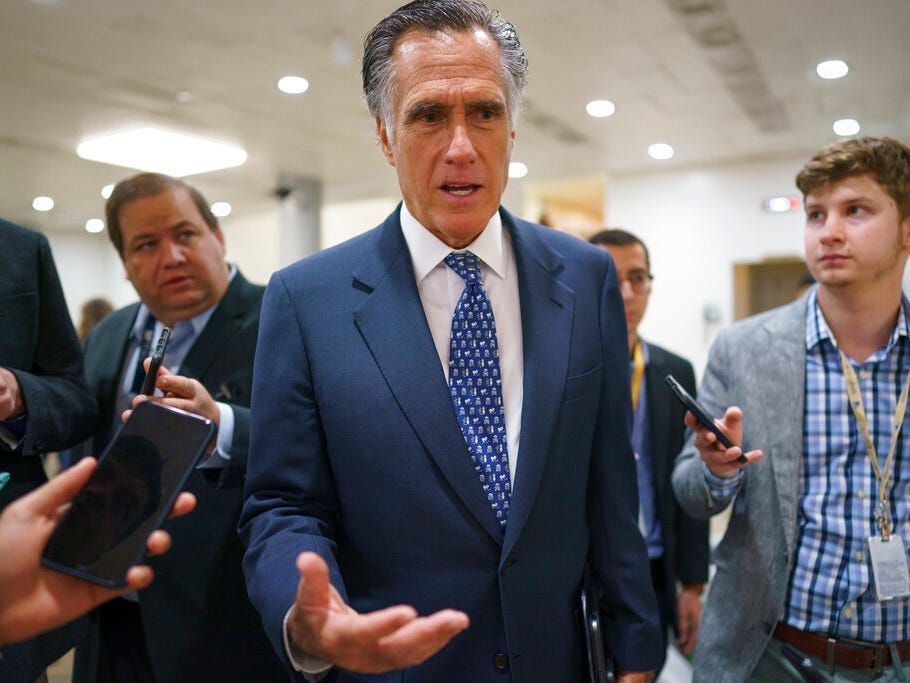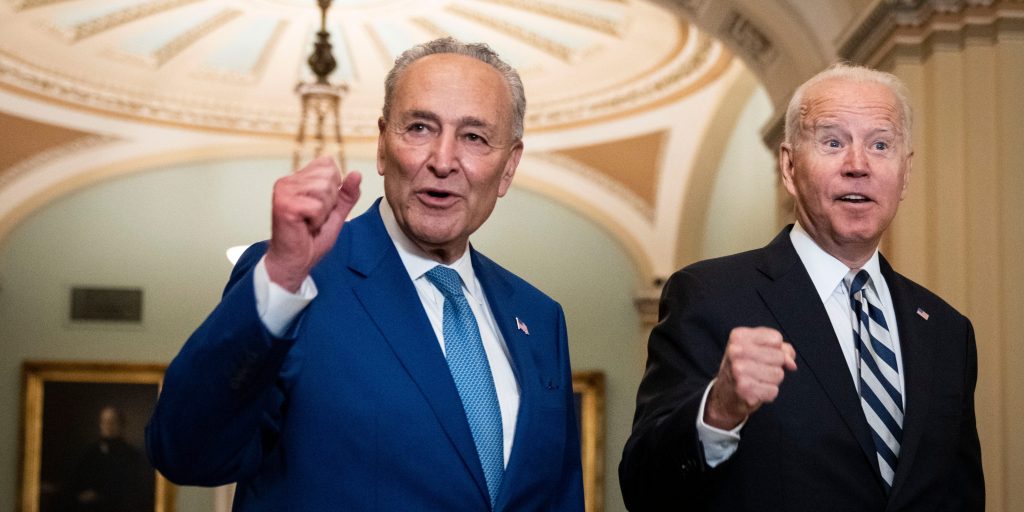
Drew Angerer/Getty Images
- The past two weeks underscored one thing: Both parties want to avoid defaulting on the debt.
- When the debt ceiling expires in December, things will probably be okay, just as they were in October.
- Also, the US may have a longer window to act next time around.
Congress is poised to barely avert a default this month with Republicans and Democrats striking a deal to extend the debt limit in what will amount to a two-month truce.
The deal sets up another showdown over the nation's ability to repay its bills in early December, a battle that will be coupled with government funding. It threatens to jam Democrats as they labor to get President Joe Biden's economic agenda across the finish line, relying on their reed-thin majorities.
Yet the odds are better than not that the US will continue averting a default that experts warn would cut Social Security payments, roil financial markets, and jeopardize the global economy. Despite the intense political posturing, events from the past two weeks underscored one thing: Neither Republicans nor Democrats want to see the nation plunged into a fresh economic crisis.
"The debt limit is going to be raised," Sen. Mitt Romney of Utah told Insider earlier in the week. "Republicans want it raised. Democrats want it raised."
"There's never been any danger that the US is going to default on its debt," Sen. Pat Toomey of Pennsylvania told Insider at the same time.

AP Photo/J. Scott Applewhite
Congress may have a longer window for December showdown
Senate Republicans led by Minority Leader Mitch McConnell of Kentucky had been blocking attempts from Democrats to lift the debt ceiling, even as the clock was ticking and the US inched closer towards a fiscal abyss. The GOP's obstruction ramped up calls among Democrats to blow a hole in the filibuster - the 60-vote threshold most bills need to pass - if it meant averting disaster.
The prospect of Democrats nuking the filibuster and ramming through an extension unilaterally caused McConnell to offer a two-month debt limit extension to Senate Majority Leader Chuck Schumer. Eleven Senate Republicans ultimately voted to pave the way for final passage of a debt limit extension, including McConnell.
Democrats did express some concern about Congress punting priorities that it sets up a traffic jam for the legislative body. Republicans are "absolutely are trying to slow down the legislative agenda and make it harder to actually get things done," Sen. Debbie Stabenow of Michigan told Insider.
With Republicans backing off their demands that Democrats use the party-line reconciliation process, Schumer insisted that the GOP must share the burden come December.
"For the good of America's families, for the good of our economy, Republicans must recognize in the future that they should approach fixing the debt limit in a bipartisan way," Schumer said in a floor speech that was condemned by Republicans. "We hope Republicans will join in enacting a long-term solution to the debt limit in December."
Still, even if Republicans and Democrats fail to agree on a debt limit deal before December 3, they may have a longer window to act before the US runs up against fiscal ruin once again. Donald Schneider, a former economist for GOP staff on the House Ways and Means committee, projected that the Treasury Department could launch emergency cash conservation measures to finance US debt until early February.

